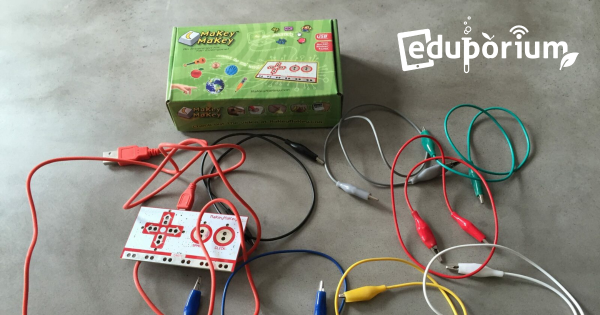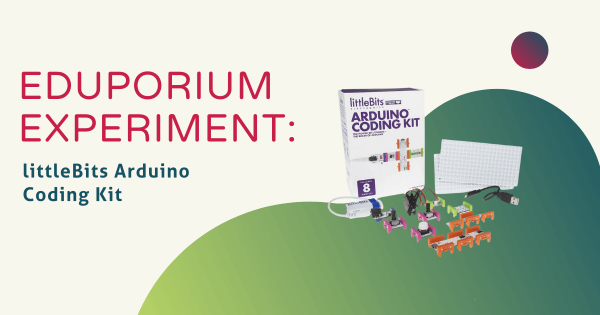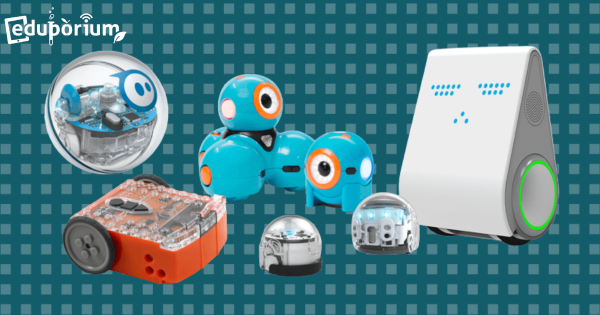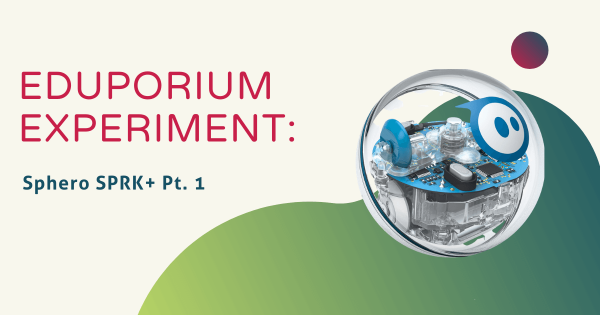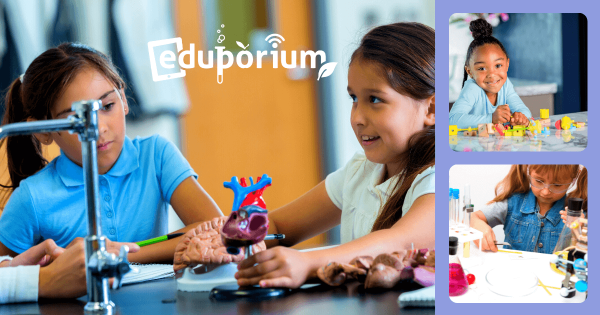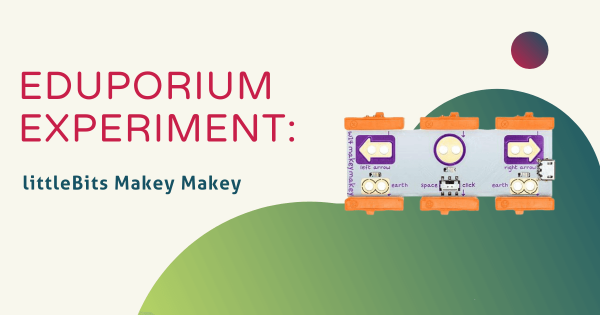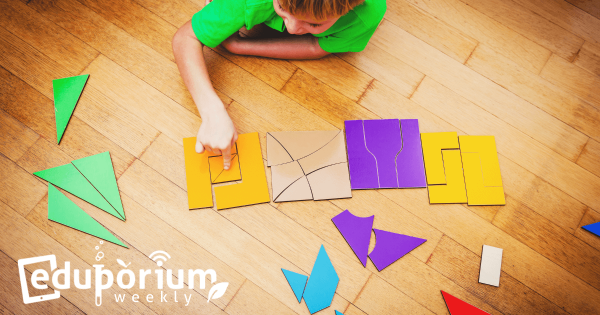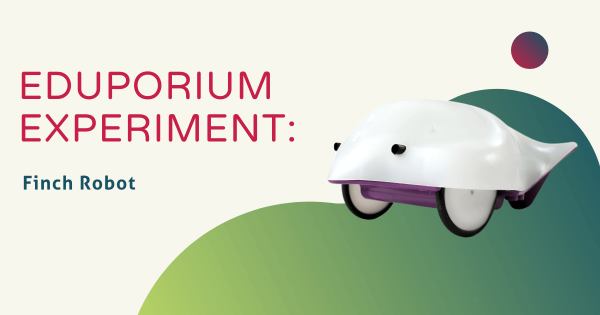For educators, especially those who may be new to technology and STEM in general, the Makey Makey is an excellent starting point for your lessons. Besides immediately recognizing its catchy name, the Makey Makey is an extremely appealing teaching tool that boosts engagement and maximizes instruction. What does it help you teach? Just about anything you want.
Eduporium Blog
-
Eduporium Experiment | littleBits Arduino Coding Kit
Generally, when maker-minded teachers and learners hear ‘Arduino,’ they tend to think of high-level devices you build yourself, write the code for and then program it to execute whatever function it is designed to complete. If you’ve heard of littleBits, however, you know that these electronic building blocks define simplicity. -
Professionally Speaking... All K-12 Teachers Can Develop
Okay, it isn’t exactly the same as it always has been, but is today’s teacher PD keeping up with the times, especially when it comes to technology? We expect educators today to be willing to use tech tools to reach and engage each of their students, but how can they do that if they don’t know how to use the -
Robotics: A Competition And A Stepping Stone
If you think you’ve seen kids get excited about learning, you probably haven’t seen the full extent of excitement until you’ve seen robots make their way into the classroom. Teachers can discuss the ideas of learning with robotics with their students, but when it comes to unleashing their potential in the classroom, students won’t be able to contain themselves. -
Eduporium Experiment | Sphero SPRK+ Pt. 1
Thinking about the hottest and most useful skills that today’s students will, more than likely, need to know, the first thing that always comes to my mind is coding. Coding is everywhere in the workforce in 2016. For students in first and second grade now, however, coding will be in even more places than everywhere by the time they’re ready -
Eduporium Weekly | Girls in STEM
Have you ever heard the phrase “bucking the trend?” It’s usually used when something in particular has been the status quo for a number of years and a group of dedicated individuals decides that they want to be a part of it instead of watching from the sidelines. When it comes to the number of girls who pursue CS careers, -
Eduporium Experiment | littleBits Makey Makey
We’re guessing you’re already familiar with both littleBits and the Makey Makey, but, if you’re not, you can learn a bit about them by exploring our blog and store. Basically, littleBits are electronic building blocks that each have their own specific function and allow kids to build inventions with purpose. Read on to learn more about it. -
Eduporium Weekly | The Earlier the Better
Proponents of STEM education generally believe that hands-on, practical and in-depth learning should really begin taking place during a student’s high school years. We believe, however, that it can start earlier than that—like, much earlier. Who’s to say that young children cannot be exposed to the same kinds of experiential learning as older students? -
Eduporium Experiment | Finch Robot
The Finch Robot is a teaching tool designed to combine these two crucial areas of STEM education for kids as young as 8 years old. Finch has a super simple surface, giving it the appearance of simplicity in the eyes of young students despite the fact that it’s actually filled with many tiny sensors. Plus, it supports over a dozen -
Eduporium Weekly | Computer Science? Yeah, It's Huge
Alarmingly, just one in 10 American schools offer regular computer science classes in their curricula. If I could pick just one word to describe that trend, it might have to be ‘disconnect.’ It doesn’t make any sense, you see, because jobs involving computer science skills are being created four or five times as fast as qualified graduates can fill them.



